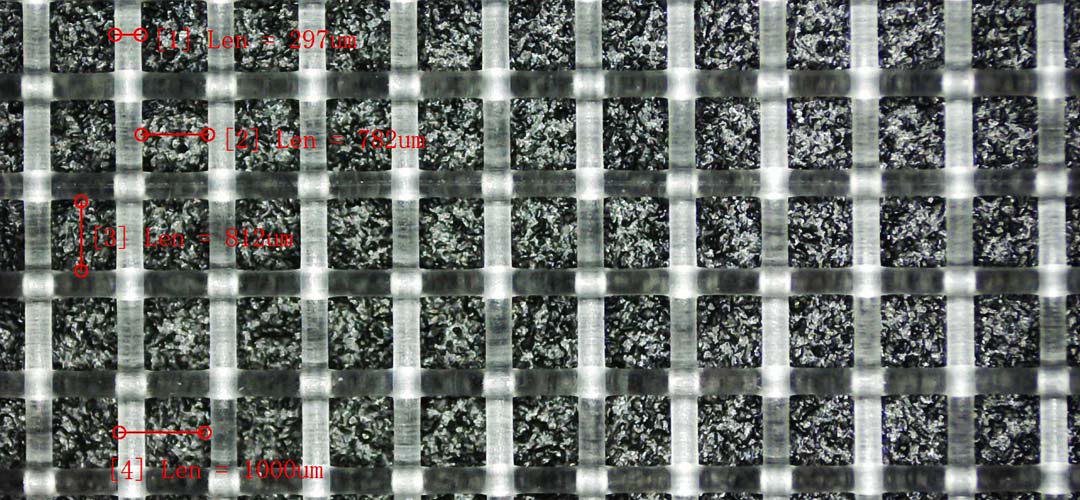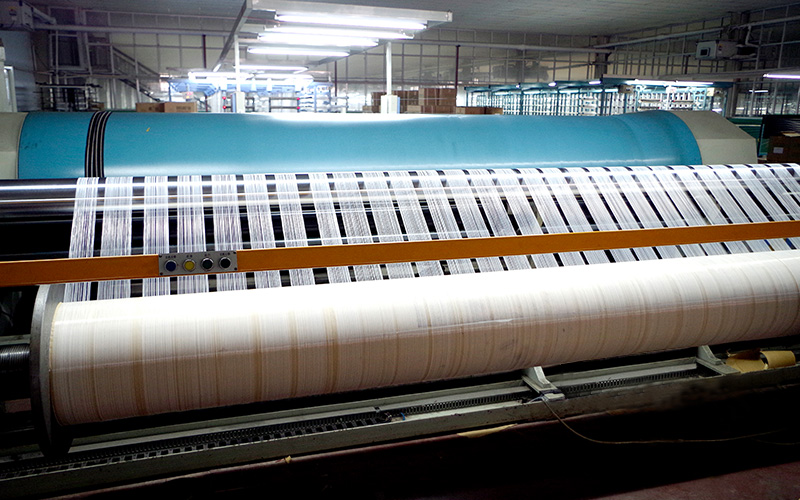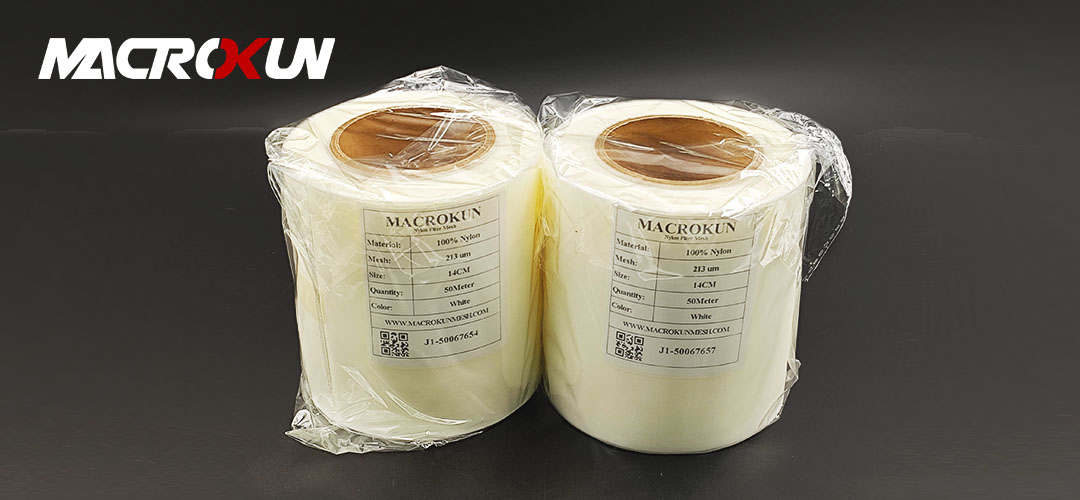Coarse nylon mesh is a versatile material that is commonly used for heavy-duty filtration of large particles. Its durability and strength make it an ideal choice for applications where fine filtration is not necessary, but the removal of larger debris is essential. In this article, we will explore the benefits of using coarse nylon mesh for heavy-duty filtration and why it is a popular choice in various industries.
One of the primary advantages of coarse nylon mesh is its ability to withstand high temperatures and harsh chemicals. This makes it suitable for use in industrial settings where filtration needs to be done under extreme conditions. The material is also resistant to abrasion, ensuring that it can maintain its integrity even when subjected to rough handling or frequent use.
In addition to its durability, coarse nylon mesh is also known for its high flow rate. This means that it allows for the quick and efficient passage of fluids through the filter, ensuring that the filtration process is completed in a timely manner. This is particularly important in applications where a fast filtration rate is required to maintain the efficiency of the system.
Another benefit of using coarse nylon mesh for heavy-duty filtration is its versatility. The material can be easily cut and shaped to fit different filter sizes and shapes, making it a flexible option for a wide range of applications. Whether you need a small filter for a laboratory experiment or a large filter for an industrial process, coarse nylon mesh can be customized to meet your specific requirements.

Furthermore, coarse nylon mesh is easy to clean and maintain, making it a cost-effective choice for filtration systems that require regular maintenance. The material can be washed with water or cleaned with a mild detergent, ensuring that it remains free from debris and contaminants that could affect its performance. This not only extends the lifespan of the filter but also ensures that it continues to provide reliable filtration over time.
Additionally, coarse nylon mesh is lightweight and easy to handle, making it convenient to install and replace in filtration systems. Its flexibility allows it to be easily manipulated to fit into tight spaces or complex filter configurations, ensuring that it can be used in a variety of applications without difficulty. This makes it a practical choice for industries that require frequent filter changes or adjustments.
In conclusion, coarse nylon mesh is an ideal material for heavy-duty filtration of large particles due to its durability, high flow rate, versatility, ease of maintenance, and lightweight nature. Whether you are filtering water, chemicals, or other fluids, coarse nylon mesh can provide efficient and reliable filtration that meets your specific needs. Consider using coarse nylon mesh for your next filtration project and experience the benefits that this versatile material has to offer.
Coarse nylon mesh is a versatile material that finds a wide range of applications in industrial settings. Its durability, strength, and resistance to chemicals make it an ideal choice for heavy-duty filtration of large particles. In this article, we will explore the various applications of coarse nylon mesh in industrial settings and how it can be used to improve efficiency and productivity.
One of the most common uses of coarse nylon mesh in industrial settings is in the filtration of large particles. The open weave of the mesh allows for the easy passage of particles while still providing effective filtration. This makes it ideal for applications where large particles need to be removed from a liquid or gas stream, such as in wastewater treatment plants or chemical processing facilities.
Another common application of coarse nylon mesh is in the separation of materials of different sizes. The mesh can be used to create screens or sieves that allow for the sorting of materials based on their size. This is particularly useful in industries such as mining, where materials need to be separated into different grades for further processing.
Coarse nylon mesh is also used in the production of industrial filters. The mesh can be formed into cartridges or bags that are used to remove contaminants from liquids or gases. Its durability and resistance to chemicals make it an ideal choice for applications where filters need to withstand harsh conditions.
In addition to filtration, coarse nylon mesh is also used in industrial strainers and screens. These devices are used to remove debris and impurities from a variety of materials, including water, oil, and chemicals. The open weave of the mesh allows for easy cleaning and maintenance, making it a cost-effective solution for industries that require frequent straining or screening.
One of the key advantages of coarse nylon mesh is its versatility. It can be easily customized to meet the specific needs of different industries, whether that means adjusting the weave size, thickness, or material composition. This flexibility makes it a popular choice for a wide range of applications, from food processing to pharmaceutical manufacturing.

Overall, coarse nylon mesh is an essential component in many industrial processes. Its strength, durability, and resistance to chemicals make it an ideal choice for heavy-duty filtration of large particles. Whether used in filters, screens, or strainers, coarse nylon mesh can help improve efficiency and productivity in a variety of industrial settings. Its versatility and customizability make it a valuable tool for industries looking to optimize their processes and ensure the highest quality of their products.
Coarse nylon mesh filters are commonly used in industrial applications where heavy-duty filtration of large particles is required. These filters are durable, long-lasting, and highly effective at capturing debris and contaminants that can clog machinery and equipment. However, like all filters, coarse nylon mesh filters require regular maintenance and cleaning to ensure optimal performance.
Proper maintenance of coarse nylon mesh filters is essential to prevent clogging and maintain the efficiency of the filtration system. Over time, debris and contaminants can build up on the surface of the filter, reducing its effectiveness and potentially causing damage to the equipment it is meant to protect. Regular cleaning of the filter is necessary to remove this buildup and ensure that the filter continues to function properly.

One of the most common methods for cleaning coarse nylon mesh filters is to simply rinse them with water. This can be done by spraying the filter with a hose or immersing it in a bucket of water. The water will help to dislodge any debris or contaminants that have accumulated on the surface of the filter, allowing them to be easily washed away. It is important to use clean water for this process to avoid introducing additional contaminants into the filter.
In some cases, rinsing the filter with water may not be enough to remove all of the buildup. In these instances, a mild detergent or cleaning solution can be used to help break down stubborn debris and contaminants. It is important to use a gentle cleaning solution that will not damage the filter or leave behind any residue that could interfere with its performance. After applying the cleaning solution, the filter should be rinsed thoroughly with water to remove any remaining residue.
Once the filter has been cleaned, it is important to allow it to dry completely before reinstalling it in the filtration system. This will help to prevent mold and mildew from growing on the filter and ensure that it continues to function properly. Depending on the size of the filter and the amount of debris that needs to be removed, it may take several hours or even a full day for the filter to dry completely.
In addition to regular cleaning, it is also important to inspect coarse nylon mesh filters periodically for signs of damage or wear. Tears, holes, or other damage to the filter can compromise its effectiveness and allow contaminants to bypass the filtration system. If any damage is found, the filter should be replaced immediately to prevent further issues.
Proper maintenance and cleaning of coarse nylon mesh filters are essential to ensure the longevity and effectiveness of these important filtration components. By following these simple steps, you can keep your filters in top condition and protect your equipment from damage caused by debris and contaminants. Remember to clean your filters regularly, inspect them for damage, and replace them as needed to keep your filtration system running smoothly.
Pre: Polyester Nylon Filter Mesh: Combining Durability and Filtration Efficiency
Next: 300 Micron Nylon Mesh: Optimal for Coarse Filtration and Liquid Separation

MACROKUN has established long-term and stable cooperative relations with many transportation companies such as China Post, DHL, FEDEX, USPS, UPS, etc. Of course, MACROKUN can also provide air and sea transportation. The powerful logistics system enables all MACROKUN'S Printing Mesh, Filter Mesh and Filter Bags and so on to be easily and efficiently transported to any place. For quotes and inquiries, please email our sales team.





